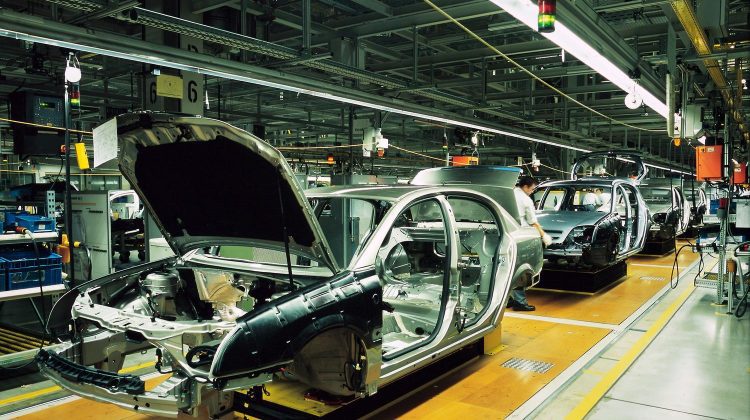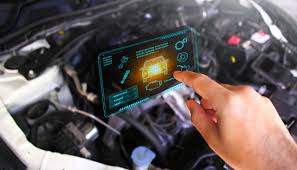It's 2025, and we are in for some of the biggest changes in the automative industry : one of which, holds the most remarkable contriibutor to this progress- Big Data. It might sound like a buzzword, but Big Data is making real differences in how vehicles are maintained, repaired, and even designed.
Whether you’re a driver, a mechanic, or someone who’s just into cars and tech, understanding how Big Data is being used in car service can give you a peek into the future of smarter, safer, and more personalized automotive care.
Ready to know?
Let’s break it all down.

What Is Big Data ?
Big Data refers to huge sets of information collected from many different sources. In the car industry, these sources include:
Sensors inside your car (think: engine, brakes, GPS, fuel system)
Diagnostic tools at service centers
Customer service records and maintenance history
Real-time driving data (how fast you drive, how often you brake, etc.)
Online reviews and user feedback
All this information when collected and analyzed, can help mechanics, car companies, and service centers make smarter decisions and offer better, more efficient service.
Predictive Maintenance: Fixing Problems Before They Happen
One of the coolest ways Big Data is used in car service is through predictive maintenance.
Instead of waiting for your car to break down or following a basic calendar for maintenance (like an oil change every 5,000 miles), Big Data helps predict exactly when a part might fail—based on how you drive, your car's history, and even the weather in your area.
Example:
Let’s say your brakes are starting to wear down. Big Data systems might notice that:
You brake often and hard (based on your driving habits),
You live in a hilly area (which uses more braking),
Your brake pads are at 20% wear (based on sensor data).
Rather than waiting for a warning light—or worse, a brake failure—your car service center can let you know it’s time for a checkup. That means fewer surprise breakdowns and safer driving

Personalized Maintenance Plans
Big Data also helps create custom maintenance plans for each vehicle. Instead of using a "one-size-fits-all" checklist, shops can tailor service based on:
How often the car is used
What kind of roads it usually drives on (city vs. highway)
The driver’s habits (fast acceleration, lots of idling, etc.)
This keeps your car in better shape and prevents spending money on services you don’t actually need.
Better Diagnostics = Faster, Smarter Repairs
Ever had your mechanic take hours to figure out what’s wrong? Big Data is changing that.
Modern diagnostic tools, powered by Big Data, can pull information from your car's onboard computers and compare it to millions of data points from other vehicles. That makes it much easier (and faster) to pinpoint exactly what’s wrong.
Benefits:
Plus, it gives technicians a full picture of your car’s health, not just a single error code.
Smarter Parts Inventory Management
When a car part breaks, the last thing you want is to hear, “Sorry, we have to order that.” Big Data helps service centers predict which parts they’ll need most, and stock them accordingly.
Here’s how:
Analyzing local repair trends (Are a lot of people replacing spark plugs this season?)
Reviewing your car’s service history (Is your vehicle type prone to battery issues?)
Looking at seasonal changes (Do more people need new wiper blades in winter?)
By knowing what parts are likely to be in demand, shops save money and reduce delays—so you get your car back faster.
Boosting Customer Experience
Big Data isn’t just about fixing cars—it’s also about making drivers happy.
Service centers and dealerships are using data to:
Send timely reminders for service (not too soon, not too late)
Offer special discounts based on your driving habits
Recommend useful services based on your car’s condition
Avoid repeating questions you’ve already answered
Example:
If your car’s battery was replaced six months ago, the system knows not to try to sell you another one during your next visit. That kind of smart service builds trust—and keeps customers coming back.
Real-Time Monitoring for Fleets
For businesses that operate delivery trucks, taxis, or rental cars, Big Data is a game changer.
Fleet managers can:
Track vehicle locations and status in real time
Monitor fuel use and driver behavior
Schedule maintenance automatically based on real-world data
Reduce wear-and-tear through smarter route planning
This saves companies thousands of dollars and helps them avoid problems that can disrupt business—like breakdowns or unsafe driving.
Improving Vehicle Safety
Big Data is also making cars safer.
By analyzing data from millions of vehicles, automakers and service providers can:
Identify parts that fail often or cause accidents
Track which models have the most brake issues, engine problems, or software glitches
Issue faster recalls before small issues turn into dangerous ones
And in the future, this same data could help make self-driving cars even more reliable by teaching them how to avoid risky situations.
Challenges of Using Big Data in Car Services
While the potential is huge, Big Data in car service isn’t without its hurdles.
1. Privacy Concerns
Car data is personal. It shows where you go, how you drive, and when you’re on the road. Companies must be transparent about how they collect and use that info—and protect it from hackers or misuse.
2. Cost of Technology
Big Data tools aren’t cheap. Smaller repair shops might not have the resources to install advanced systems, meaning they could get left behind.
3. Learning Curve
Using Big Data well requires trained staff who understand analytics, software, and car diagnostics. Training takes time, and mistakes can be costly if the wrong data is used.

The Future of Big Data in Auto Service
We’re only scratching the surface of what Big Data can do. In the next few years, we’ll see:
Smarter AI tools that learn from every car they scan
Connected cars that talk directly to service centers and schedule their own appointments
Apps that show you your car’s real-time health score on your phone
Fewer breakdowns, thanks to always-on vehicle monitoring
Customized care plans, just like a fitness app for your car
This tech won’t just be for luxury cars or big dealerships—it’ll be standard for everyone.
Final Thoughts
Big Data is transforming how we take care of our vehicles. From predicting problems to personalizing services, it’s making car maintenance more efficient, more affordable, and way more convenient.
As a driver, that means fewer surprise repairs, smarter service visits, and safer time on the road. As a shop owner or technician, it means tools that help you work faster, better, and with more confidence.
One thing’s for sure: the future of car service isn’t just under the hood—it’s in the data.